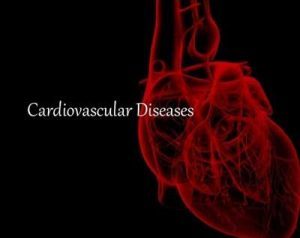- Home
- Editorial
- News
- Practice Guidelines
- Anesthesiology Guidelines
- Cancer Guidelines
- Cardiac Sciences Guidelines
- Critical Care Guidelines
- Dentistry Guidelines
- Dermatology Guidelines
- Diabetes and Endo Guidelines
- Diagnostics Guidelines
- ENT Guidelines
- Featured Practice Guidelines
- Gastroenterology Guidelines
- Geriatrics Guidelines
- Medicine Guidelines
- Nephrology Guidelines
- Neurosciences Guidelines
- Obs and Gynae Guidelines
- Ophthalmology Guidelines
- Orthopaedics Guidelines
- Paediatrics Guidelines
- Psychiatry Guidelines
- Pulmonology Guidelines
- Radiology Guidelines
- Surgery Guidelines
- Urology Guidelines
The cardiovascular effects of cocaine

Havakuk and colleagues wrote a comprehensive review on the cardiovascular effects of cocaine use. Cocaine is the leading cause for drug-abuse-related visits to emergency departments, most of which are due to cardiovascular complaints. Cocaine has diverse pathophysiological mechanisms by which it exerts its various adverse effects on the cardiovascular system. These include prothrombotic effects, impaired cerebral blood flow, catecholamine surge, impaired calcium handling, and others. The actual findings can range from myocardial infarction, aortic dissection, and heart failure/cardiomyopathy to stroke, excessive hypertension, chest pain and arrhythmias.
The onset and duration of effects are dependent on its route of adminstration. Intravenous and smoked routes have a very rapid onset of action (seconds), while the mucosally absorbed routes (e.g. nasal, rectal) allow for slower absorption. Indepent from the route of absorption, cocaine and its metabolites are excreted in urine within 1 to 2 hours and 4 to 7 hours, respectively.
Because of its various effects on the cardiovascular system and its high addictive potential, cocaine’s use can be considered a “considerable threat to the integrity of the cardiovascular system,” said Havakuk et al. Reports of increased use among teenagers, and even in children is discouraging and warrants greater understanding of the deleterious effects of this agent, said the authors.

Disclaimer: This site is primarily intended for healthcare professionals. Any content/information on this website does not replace the advice of medical and/or health professionals and should not be construed as medical/diagnostic advice/endorsement or prescription. Use of this site is subject to our terms of use, privacy policy, advertisement policy. © 2020 Minerva Medical Treatment Pvt Ltd